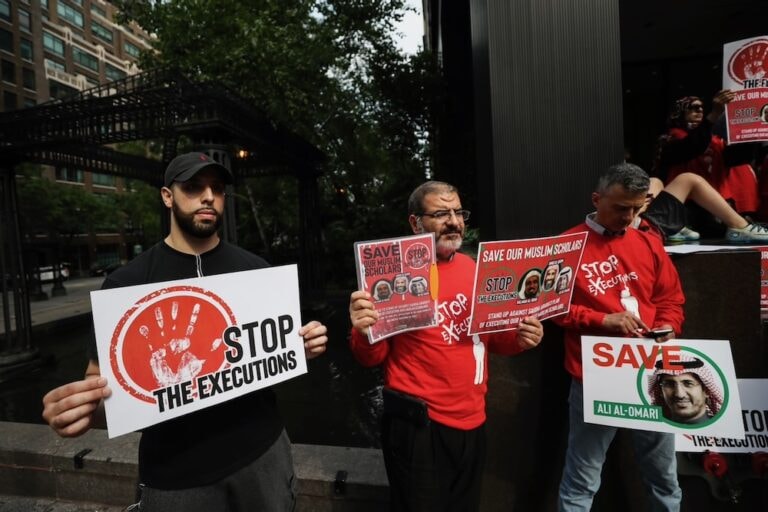In submissions to the UN Human Rights Council, the International Publishers Association recommended ways to support the governments of Nigeria, Malaysia and Saudi Arabia to improve their records on freedom of expression.
The International Publishers Association (IPA) found widespread censorship in Nigeria, Malaysia and Saudi Arabia. In submissions to the UN Human Rights Council, the IPA recommended ways to support the governments of these three countries to improve their records on freedom of expression.
Overall, the IPA found that the freedom of expression recommendations previously accepted by these states in 2009 were not implemented. IPA called on Malaysia and Saudi Arabia to sign and quickly ratify the International Covenant on Civil and Political Rights (ICCPR) to signal the intent to respect freedom of expression in the future. While Malaysia should be commended for implementing the freedom of expression recommendations accepted in 2009, in practice, freedom of expression in Malaysia has not yet improved. And Saudi Arabia has not met the commitments it made in 2009.
Mr Bjørn Smith-Simonsen, Chair of IPA’s Freedom to Publish Committee, said: “We invite the countries under UPR review at the UN Human Rights Council to keep their word and genuinely implement the freedom of expression recommendations they accepted four years ago and we call on Malaysia and Saudi Arabia to sign the ICCPR as soon as possible”.
Read IPA’s submission on Malaysia.
Read the joint submission on Nigeria by CPJ, IPA and PEN.
Read IPA’s submission on Saudi Arabia.
About each IPA Submission:
The submission on Malaysia found restrictions on the freedom of expression and freedom to publish including the 1984 Printing Press and Publications Act (PPPA) and a list of 1,517 banned books on the Home Ministry website, including Peter Mayle’s Where Did I Come From? and Irshad Manji’s Allah, Liberty & Love – Courage to Reconcile Faith & Freedom.
Saudi Arabia’s Basic Law does not guarantee freedom of expression but provides that the State protects human rights “in accordance with the Sharia”. Freedom of expression in Saudi Arabia is also severely limited by the Press and Publications Law, which includes a list of banned topics. Other freedom of expression restrictions include: De facto travel bans on human rights defenders, severe restrictions on freedom of association, and arrests of human rights activists.
In a joint submission on Nigeria, PEN International, the Committee to Protect Journalists (CPJ), and IPA identified ongoing threats of harassment and murder of journalists in the country from both government and anti-government forces. Nine regions in Nigeria have adopted Sharia law, despite clear conflicts with the federal constitution, and censorship in these states is rampant.
About the UN Human Rights Council’s UPR Working Group:
The UN Human Rights Council’s UPR Working Group reviews the human rights record of each member of the UN every four years. In October 2013, Nigeria, Malaysia and Saudi Arabia will report on human rights in their respective countries and receive recommendations from members of the Human Rights Council in Geneva.


